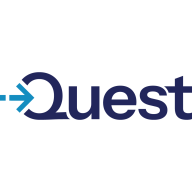

Find out what your peers are saying about Microsoft, Informatica, IBM and others in Data Integration.
| Product | Market Share (%) |
|---|---|
| Azure Data Factory | 3.2% |
| SSIS | 4.0% |
| Informatica Intelligent Data Management Cloud (IDMC) | 3.7% |
| Other | 89.1% |
| Product | Market Share (%) |
|---|---|
| erwin Data Catalog | 3.3% |
| Collibra Platform | 18.0% |
| Informatica Intelligent Data Management Cloud (IDMC) | 16.0% |
| Other | 62.7% |


| Company Size | Count |
|---|---|
| Small Business | 31 |
| Midsize Enterprise | 19 |
| Large Enterprise | 57 |
Azure Data Factory efficiently manages and integrates data from various sources, enabling seamless movement and transformation across platforms. Its valuable features include seamless integration with Azure services, handling large data volumes, flexible transformation, user-friendly interface, extensive connectors, and scalability. Users have experienced improved team performance, workflow simplification, enhanced collaboration, streamlined processes, and boosted productivity.
erwin Data Catalog empowers businesses to efficiently manage their data assets, providing a comprehensive overview and governance capabilities. It supports metadata management, enhancing data discovery and curation processes.
erwin Data Catalog offers robust data management tools that streamline data discovery, lineage, and governance. Designed for sophisticated data environments, it ensures efficient metadata control, providing users with an intuitive way to handle and leverage extensive data assets. Its features cater to enterprises looking to optimize data compliance and transformation strategies.
What are the main features of erwin Data Catalog?erwin Data Catalog is successfully implemented in industries such as finance, healthcare, and retail, enabling these sectors to leverage vast data volumes effectively. It enhances operational efficiency by streamlining data management practices, ensuring compliance, and supporting critical data-driven decision-making processes.
We monitor all Data Integration reviews to prevent fraudulent reviews and keep review quality high. We do not post reviews by company employees or direct competitors. We validate each review for authenticity via cross-reference with LinkedIn, and personal follow-up with the reviewer when necessary.